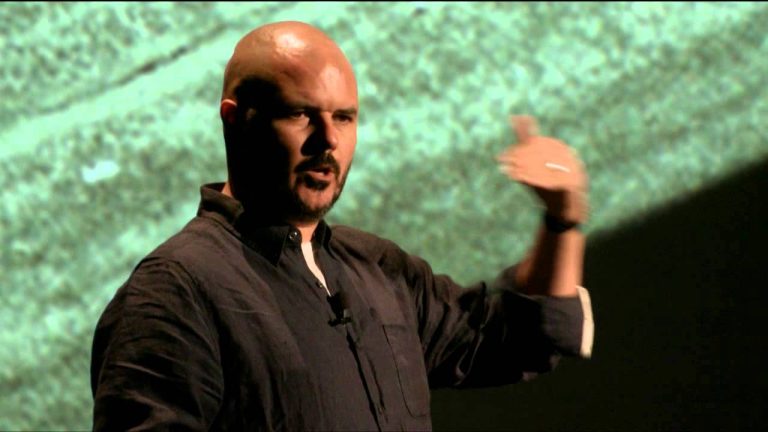In the realm of human psychology, the concept of a defensive wall holds great significance. It represents a fascinating interplay between our innate survival instincts and our emotional well-being. Whether metaphorical or literal, these protective barriers have the power to shield us from external threats, but they also have a profound impact on our internal landscape. In this article, we delve into the psychological aspect of a defensive wall, exploring its effects on our sense of security, vulnerability, and ultimately, our personal growth. Join us as we unravel the intricate layers of this captivating phenomenon.
What is the reason behind certain individuals constructing a wall around their own selves?
Building walls around oneself can be a defense mechanism against emotional pain and disappointment. By creating barriers, individuals hope to shield their hearts from potential harm, avoiding the anguish they have experienced before. This self-protective instinct drives people to isolate themselves and maintain distance from others, ultimately aiming to preserve their emotional well-being.
Another reason individuals may construct walls around themselves is the fear of judgment and rejection. They worry that if they reveal their true selves, others will criticize them or withhold their approval. This fear can stem from past experiences of feeling misunderstood or rejected. Consequently, individuals choose to keep their true thoughts and feelings hidden behind a protective barrier, preferring to avoid the potential judgment of others.
For some, building walls is a way to establish a sense of safety and control. By creating boundaries and keeping others at arm’s length, individuals can carefully manage their interactions and limit potential risks. This self-imposed isolation allows them to maintain a sense of order and certainty in their lives, alleviating any feelings of vulnerability or unpredictability.
In summary, people may build walls around themselves as a defense mechanism to shield their hearts from pain, to protect themselves from judgment and rejection, or to establish a sense of safety and control. These walls serve as barriers that separate individuals from potential emotional harm and allow them to navigate the complexities of human relationships in a way that feels secure to them.
What is the cause of emotional walls?
Emotional walls can stem from past heartaches and the fear of vulnerability. When individuals have experienced emotional pain, they instinctively put up self-defense mechanisms like invisible shields. These walls gradually build up as a means of protecting oneself from potential hurt or disappointment. It’s as if everyone has their own unique way of safeguarding their emotions when things start to get too real.
These self-erected barriers often manifest themselves in relationships. When individuals have been through the emotional wringer, their walls begin to solidify. This could be due to previous experiences of heartbreak or betrayal, causing them to become cautious and guarded with their emotions. The emotional walls act as a safeguard against potential pain, preventing individuals from fully opening up and exposing themselves to vulnerability.
Therefore, emotional walls can be seen as a natural defense mechanism that people develop to shield themselves from potential emotional harm. These walls serve as a means of self-preservation, allowing individuals to maintain a sense of control over their emotions and protect themselves from potential heartache. However, it is important to recognize and address these walls in order to foster healthy and genuine connections in relationships.
What is the meaning behind someone putting up walls?
When someone puts up walls, it signifies their instinct to safeguard themselves by creating emotional barriers. This reserved behavior manifests in their reluctance to let others get too close, as they fear potential harm. Consequently, they maintain a certain level of distance and rarely reveal their vulnerabilities, keeping their true emotions hidden from others. These walls serve as a shield, shielding them from potential pain and disappointment.
The act of building walls entails individuals taking measures to protect themselves from potential harm, often by withdrawing and acting reserved. By creating emotional barriers, they maintain a certain distance from others, fearing that allowing people in may result in emotional pain. Consequently, they shy away from opening up and showing vulnerability, keeping their true selves hidden. These protective walls act as a defense mechanism, shielding individuals from potential hurt and disappointment.
Breaking Barriers: Unveiling the Psychology Behind Defensive Walls
Breaking Barriers: Unveiling the Psychology Behind Defensive Walls
In a world where connection is celebrated, defensive walls have become an intriguing phenomenon. These invisible barriers, constructed unconsciously, stand as a shield against vulnerability and potential harm. Whether it’s the fear of rejection or the desire to maintain control, these walls prevent individuals from truly engaging with others and experiencing deep connections. By delving into the psychology behind these defensive walls, we can begin to understand the underlying fears and insecurities that drive their construction. Only by recognizing and dismantling these barriers can we pave the way for genuine human connection and break free from the constraints of isolation.
Unmasking the Invisible: Understanding the Psychological Forces Driving Defensive Walls
In a world where walls have become symbols of division and exclusion, it is crucial to delve into the psychological forces that drive the construction of defensive barriers. These invisible forces, rooted deep within our collective consciousness, are fueled by fear, insecurity, and a desperate need for control. The allure of defensive walls lies in their ability to create an illusion of safety and protection, offering a sense of comfort in an uncertain world. However, it is only by unmasking these invisible forces and understanding the underlying psychological mechanisms that we can truly break down the walls that divide us and foster a world built on empathy, understanding, and unity.
In the realm of human psychology, the construction of a defensive wall holds a fascinating significance. It serves as a tangible manifestation of our innate desire for protection, shielding us from the uncertainties and vulnerabilities of the outside world. Yet, as the walls grow higher and stronger, we must also acknowledge the potential consequences they carry. By understanding the psychological complexities at play, we can navigate the delicate balance between self-preservation and the need for genuine connection, ultimately forging a path towards a more empathetic and harmonious existence.



